How hattrick hero Denis Onyango was found at midnight
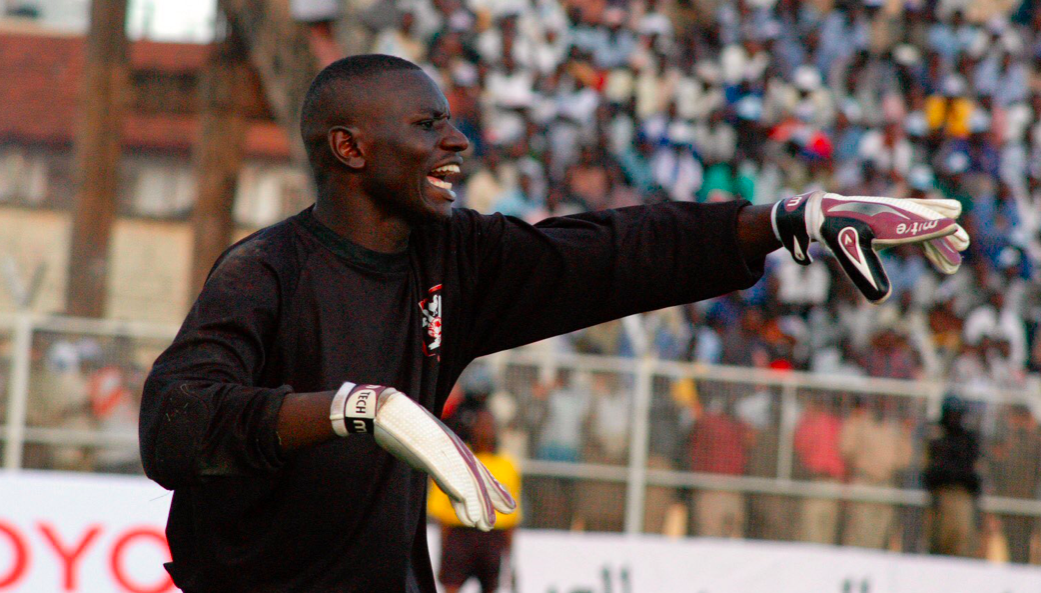
Envision a towering Denis Onyango giving defenders a torrid time as a number nine! Unimaginable, especially when you’ve been accustomed to the man as the imposing figure in between the sticks for many years.
The memory is totally different for one Hakim Magumba. He was at the tail end of his first stint with SC Villa, occasionally functioning as the club’s unofficial scout when he played a part in bringing teenage Onyango to the 16-time Ugandan league champions back in 2003.
By his own admission, his recollection of the tall goalie during his short stint at Villa is a hat-trick he scored against Gulu United in 2004 for the Kampala side. Yes, a hat-trick as an infield player.
That is because the nifty teenager his memory summons up was number four in the goalkeeping pecking order under the tutelage of former Orlando Pirates coach Milutin Sredojevic.
So, he was deployed as a striker for a good seven games and scored a hat-trick in one of those.
“Do you know that Onyango once scored a hat-trick?” That is the first question Magumba asks when he receives a phone call from FARPost. “Yes, he was a good striker,” he adds from his Kampala base.
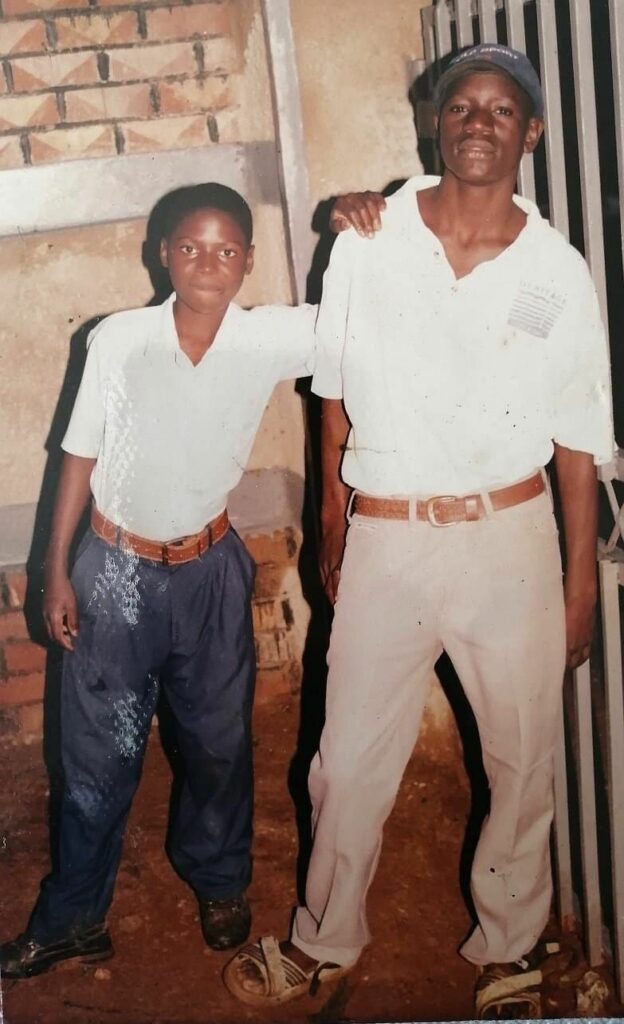
The former Cranes midfielder, Magumba, even has a more attention-grabbing story about the Ugandan goalkeeper’s meteoric rise. But the man who had done the unorthodox early scouting was Richard Amatre. Magumba’s task was a simple one, barring the fact that it almost took him all night.
Amatre remembers that sunny afternoon back in 1997 as he walked past a handball field in a middle-class suburb Nsambya in Kampala. If he were in South Africa, Onyango would have been doing Grade Seven at that point.
The skills the group of about 15 boys were displaying were enticing to the eyes of Amatre, who was an active footballer at the time.
As any passionate football person would do, he gave in to the demands of his eyes and, with hands on his waist, stood there for a good half-an-hour marvelling at the immense talents he was witnessing on that dusty handball field.
Among that group was a tall, well-built striker who raced back to guard the goals after banging in a few goals for his team. Naturally, his strange versatility would catch the attention of football-crazy Amatre.
The same way he had immaculately scored goals was no different from the way he stood resolute in between the sticks. That was Amatre’s first encounter with Denis Onyango.
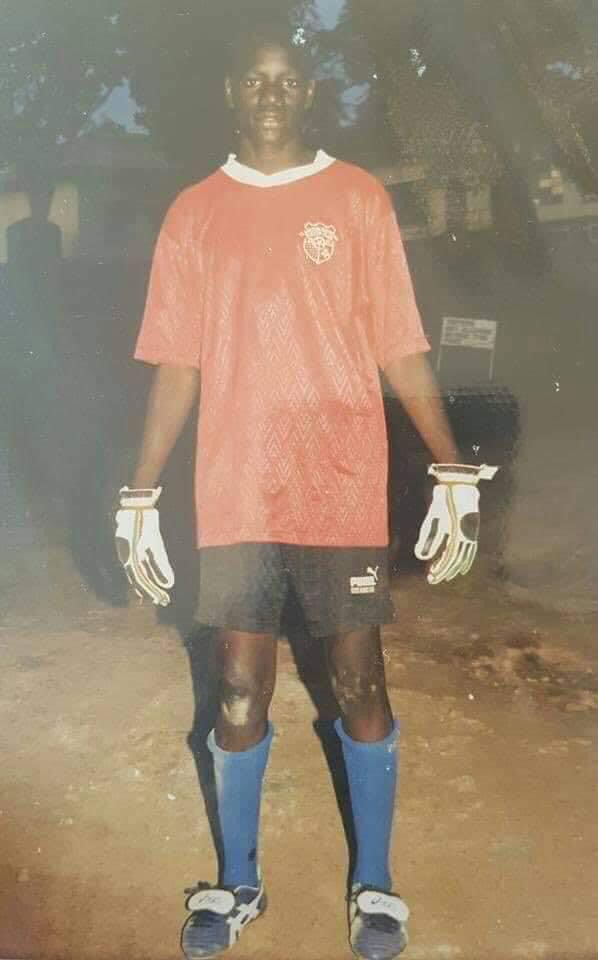
While he was swayed that the youngster was talented during those 30 minutes, he couldn’t exactly figure out the ideal position for him. Fate would have to resolve this mystery, he thought.
Of course, the goalkeeping was in your smaller goalposts synonymous with the 40 by 20 metres court used for the not-so-popular team sport – handball – in which two teams of seven players each (six out-court players and a goalkeeper) pass a ball using their hands to throw it into the goal of the other team.
But Onyango and his peers were kicking it. It didn’t matter to them that this was a handball field; all they wanted was to enjoy football.
“He was a primary chap schooling at Railway Primary School. I just piqued interest in the boys after seeing them play in a small field after school,” Amatre tells FARPost from his Kampala base.
Onyango singles him out as the one man who really knows the roots of his football journey. Perhaps the reason is how much he took an interest in him after that day.
“Denis hated conceding goals because he would have scored up front and wanted to protect their lead. I remember seeing him crying after conceding a goal and refusing to eat after losing a game,” he adds.
Interestingly, the first thing he loved about Onyango was his first touch which would often be followed by silky skills and sometimes spectacular goals.
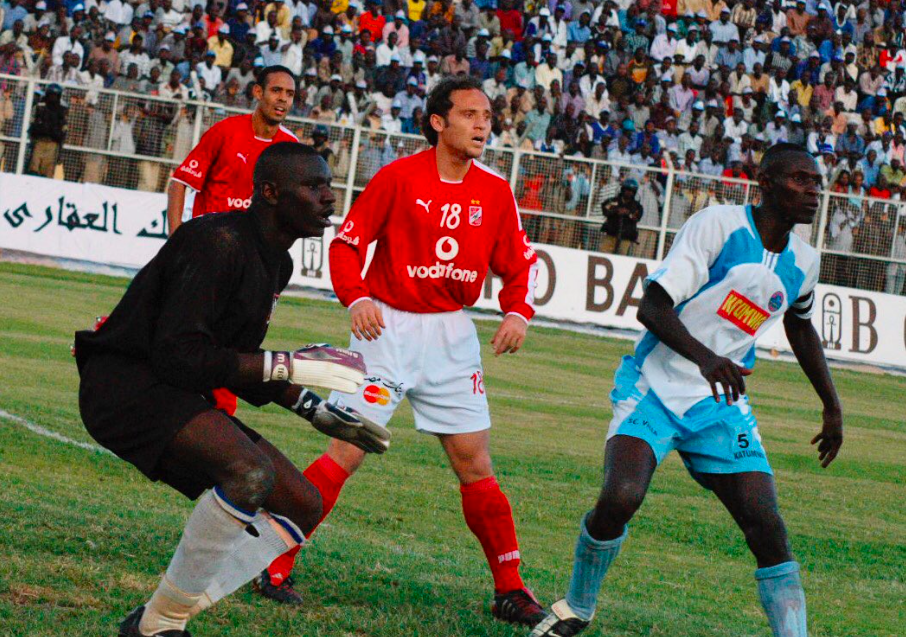
Out of that group, Amatre recommended two boys to his club – Sharing Youth Centre. The other boy was Osama Faruk. “That was where Denis’s football journey started,” he says with perceptible delight. You can tell Onyango is very close to his heart. It certainly is mutual!
Luckily, Amatre would coach the secondary school Onyango attended deep in Nsambya. A few years later, while mentoring the secondary school, he was recruited to Nsambya FC.
His beloved prodigy had to follow him. This time they were no longer coach and trainee. Onyango was capable of either striking hard upfront or securely guarding the goalposts in Uganda’s third tier and later the second tier.
“That was when I played with them, and that was Denis’s start to senior team football.”
Magumba, who is three years Onyango’s senior, stepped in during the year 2003. The Serbian coach Milutin Sredojevic was at the helm of SC Villa, ranked as Uganda’s most successful club. The Zambia national team coach spotted him during a tournament playing for Nsambya FC.
“My friend, I brought him after selecting him for SC Villa. He said everything in 2016 when he won the African player of the year,” a proud Sredojevic tells FARPost.
But the man popularly known as Micho in football circles was not the only one interested in the imposing, tall, big-bodied 18-year-old Onyango. He was in top form, Magumba recalls.
“Teams wanted him so bad after that tournament; he had done extremely well as a goalkeeper at that tournament,” he says.
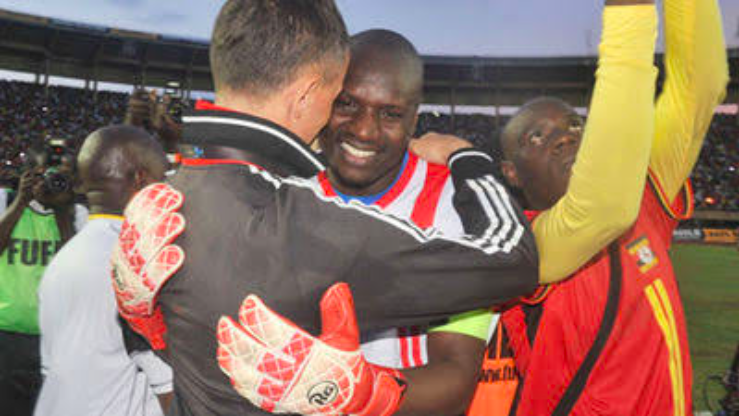
A former Kenya national team goalkeeper Matthew Ottamax Owino tells FARPost from his Nairobi base that Villa had no business signing a goalkeeper at the time.
The club boasted the best goalkeeping talents in East Africa. Interestingly, on 10 October 2004, when Uganda’s Cranes hosted Bafana Bafana in a World Cup qualifier, two of their goalkeepers, Posnet Omwony and Hannington Kyalesubula, were Onyango’s teammates. Kenya’s number one, Matthew Ottamax Owino, was also in the mix.
“We had four good goalkeepers at the time, they were all internationals, so there was certainly no place for young Denis,” he says. Clearly, Villa had no business searching for a goalie that day.
But at the insistence of Sredojevic, who was so won over that the boy was set for dizzy heights, the club decided to pursue him.
The task to sign Onyango with SC Villa was passed on to the club’s deputy captain Magumba, who was revered as a top footballer.
Often, he would be asked to bring players from eastern Uganda, where he hailed from, to management. It made management’s work so easy.
In Onyango’s case, the modest goal-minder was born and bred in Kampala. His ancestry, however, is in Busia, a town in the Eastern Region that shares a border with neighbouring Kenya.
“I spent nearly the whole night looking for Onyango until sometime around midnight when I found him somewhere in Ndejje behind Namasuba on the Kampala-Entebbe highway.

“He didn’t have a phone at the time, so tracking him was difficult. The club’s boss Umar Mandela kept calling me to check if I was winning because he was waiting to meet with the boy,” a courteous Magumba tells FARPost.
SC Villa’s supremo was waiting at the Gapco Petrol Station on Ben Kiwanuka Street in the Uganda capital. There was an urgency to sign the boy before someone else beat Villa to his signature.
“His name had started making the rounds, and several other big clubs had begun eyeing him.”
After locating the in-demand teenager and successfully convincing his mom about the ‘urgent’ midnight meeting, he presented him to Umar Mandela, the club’s chief financier at the time.
“My job was done; I stepped aside and waited. I didn’t even hear what they discussed,” explains Magumba.
But whatever they discussed was enough to persuade teenage Onyango to pack his bags and join the club once known as Nakivubo Boys. As a sweetener to the deal, Villa offered to pay Onyango’s tuition as part of the deal.
Again, the bait at Villa Park wasn’t only its success in domestic competitions, as the club was also a gateway to professional football outside the country.
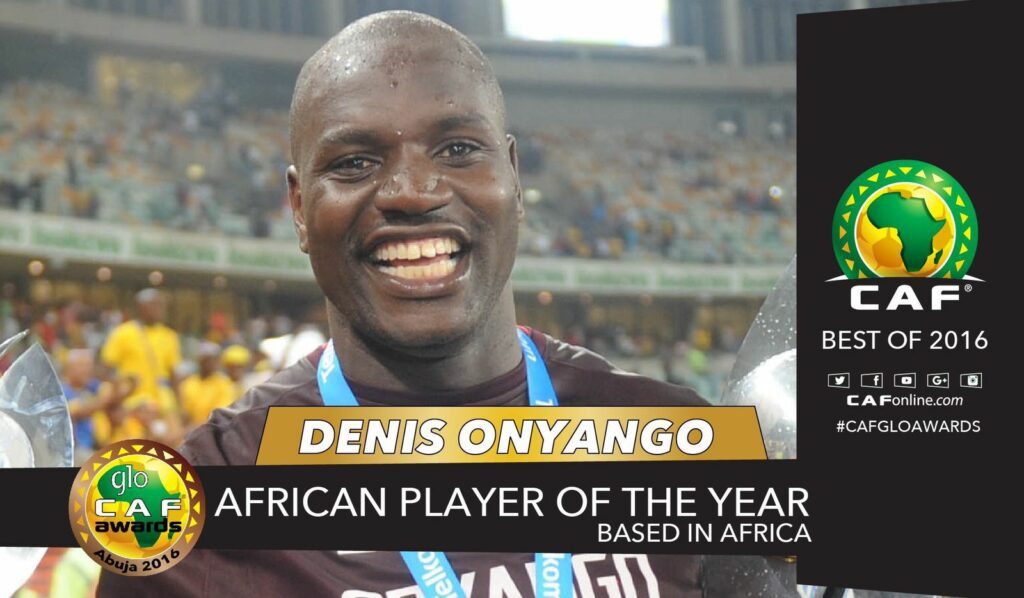
A good number of Ugandan footballers who played in foreign leagues came through the club’s ranks. It never seemed to bother Onyango that his goalkeeping chance was far. He just knew that he would get an opportunity to play a position that had grown to become his favourite one day.
“I knew my qualities and the fact that everyone will always get a chance to play in football. So for me, I knew that when given a chance, I would give my best to keep the number one jersey, and that’s what I have done all my life,” Onyango says.
It did not take him long to rise through the ranks to become the club’s number two goalkeeper. In 2004, he won the league with SC Villa.
In July 2005, Sredojevic lured his goalkeeping discovery to Ethiopia’s St George SA. Since then; the man has never looked back.
Look out for the updated Part 2 of Denis Onyango’s success story on Saturday 30 April 2022.